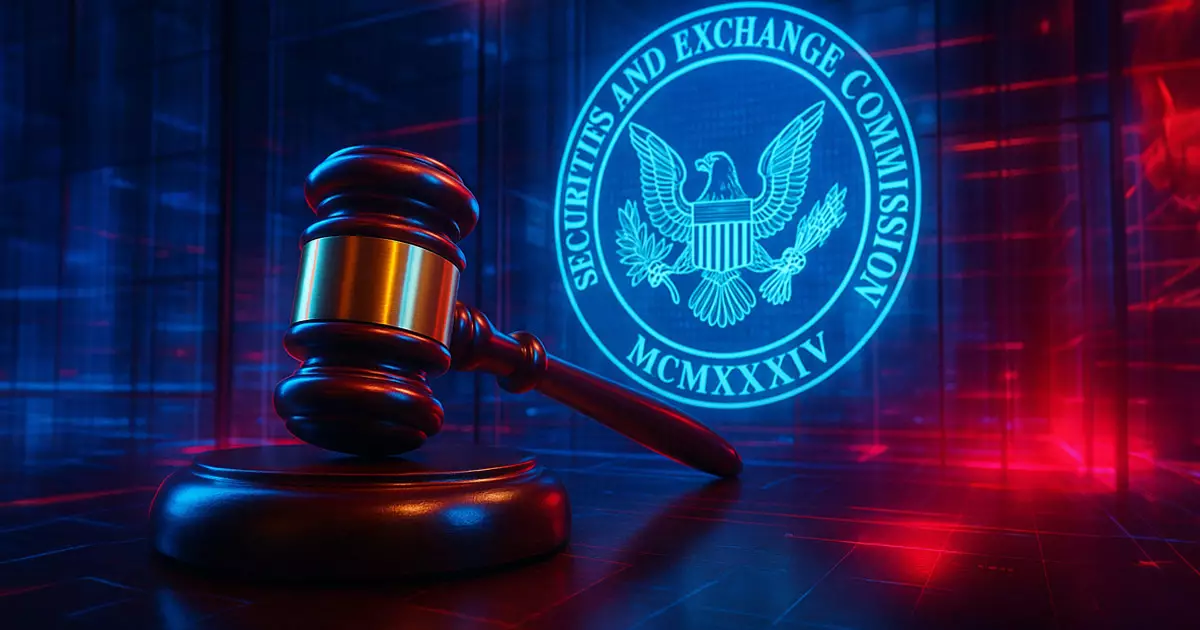In the dynamic sphere of decentralized finance (DeFi), the intersection of innovation and regulation raises significant challenges, particularly as emerging technologies burgeon faster than the wheels of legislation can turn. The DeFi Education Fund (DEF) recently expressed its forward-thinking perspective in a letter to the Securities and Exchange Commission (SEC), proposing a token safe harbor framework that would act as a temporary refuge for decentralized finance initiatives. This proposal isn’t just timely; it’s absolutely essential for navigating a regulatory landscape that often seems antagonistic to innovation.
Championing Innovation Over Stagnation
The core of the DEF’s argument revolves around the principle that regulation should facilitate rather than hinder innovation. By laying out a framework that emphasizes a technology-agnostic approach, the DEF cautions against the dangers of regulatory capture, wherein certain technologies are inadvertently privileged over others. Favoring certain blockchain models could risk stagnating a thriving ecosystem that has the potential to redefine finance. In a world where technological advancements seem almost limitless, regulatory bodies must maintain flexibility, adapting to new models rather than imposing outdated standards. This perspective captures a critical center-right liberal sentiment: regulations should protect the market while refraining from dictating its direction.
Expanding Eligibility: A Diverse Ecosystem
One of the more compelling aspects of the DEF’s proposal is its appeal for broader eligibility criteria for tokens seeking safe harbor status. In advocating that the SEC consider tokens already in circulation, the DEF not only champions inclusivity but recognizes the practical realities of how decentralized projects often evolve. By allowing already-distributed tokens to qualify for regulatory exemption, the DEF ensures that projects launched under uncertain legal circumstances aren’t unfairly penalized as they strive toward decentralization. Such an open approach is essential for fostering an environment where diverse projects can thrive, paving the way for unexpected innovations.
Transparency and Compliance: A Balanced Approach
In a bid to strike a balance between the demands of regulatory compliance and the practical limitations faced by early-stage projects, the DEF puts forth a thoughtful proposal for transparency requirements. The emphasis on source code transparency and disclosures on governance structures signifies an understanding of the intricacies involved in the development of decentralized applications. The DEF’s approach acknowledges that while investor protections are necessary, they should not stifle the creativity and adaptability that the crypto space thrives on. The suggestion to utilize automation and API connectivity to streamline compliance is groundbreaking; it reflects a practical understanding of the technological landscape, advocating for an intelligent, adaptive regulatory framework.
Establishing an “Exit Test” for Freedom
An intriguing concept presented by the DEF is the “Exit Test.” This test proposes clear criteria for when a decentralized project can finally escape the stringent security designations that stifle innovation. The necessity for maximum transparency, user autonomy, and decentralized control is a liberating notion, one that echoes sentiments of true decentralization. By delineating what it means for a token to sufficiently decentralize, the SEC can better understand the unique attributes of blockchain technology. This is about recognizing the evolution of projects—not merely imposing one-size-fits-all rules at the outset.
Safeguarding Market Participants
A significant concern for any new regulatory framework is the protection of market participants, particularly in secondary markets. The DEF’s proposal to exempt trading intermediaries from the burdens of registering as broker-dealers is a pragmatic measure that addresses market accessibility. By reducing legal uncertainties, this allowance encourages deeper participation from various stakeholders who might otherwise shy away from engaging with what can be a convoluted legal landscape. It recognizes that the future of finance will likely hinge on the active participation of numerous entities, each adding value in unique ways.
Through the lens of their recommendations, the DEF is boldly charting a path toward a more adaptive regulatory environment. They emphasize the urgent need for Congress to develop a comprehensive legislative framework that embraces these innovations rather than stifling them. It’s a clarion call for clear, consistent laws that carve out a sustainable future for DeFi. The DEF’s efforts encapsulate a broader skepticism of overregulation, reflecting a belief that a well-structured safe harbor could serve as the necessary interim solution while the legislative process unfolds. In advocating for a robust yet flexible regulatory paradigm, the DEF is poised as a critical player in navigating the complexities of the DeFi universe.

